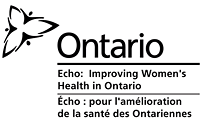Safe Gambling Without Sacrificing Mental Health

Are you setting your boundaries, practicing moderation, and seeking assistance when needed? By asking yourself these questions and following these strategies, you're on the right path towards safe gambling. Remember, the glitz and glamour of the casino should never eclipse the importance of your mental health.
Picture this: you're lounging around your house, with some leisure time on your hands. Maybe you've had a rough week and need a quick pick-me-up, or you're feeling lucky and ready for a little excitement. This is where online gambling can provide a fun and engaging pastime. But remember, the true essence of gambling lies in its sense of fun, not in the financial gains it may bring. That's why responsible gambling is crucial to your gaming experience.
Safe gambling isn’t just about taking calculated risks in hope of striking it big. Rather, it’s about understanding the rules of the game, setting limits on your playtime and expenditures, and knowing when to step away. Like every other form of entertainment, gambling can turn sour if not handled responsibly. It's like a roller coaster ride - thrilling and exhilarating, but it's best to get off before it makes you sick.
The Concept of Safe Gambling
Safe gambling, often interchanged with responsible gambling, means enjoying the thrill and excitement of games without risking harm to your mental, emotional, and financial well-being. It’s about playing with restraint, not reckless abandon, and treating gambling as a form of entertainment, not a quick route to riches.
It's akin to savoring a slice of cake—you can enjoy the delicious sweetness without overindulging and spoiling your appetite. Similarly, with gambling, it's about the experience, not the outcome. One way to stay in control of your gambling habits is to make use of platforms like low deposit casinos at https://casinohex.org/canada/casinos/10-deposit-casinos/ site. These safest casino platforms ensure that you can enjoy the fun of a wager without risking a significant amount of your hard-earned money. You can spend only minimum deposit of $10 at casino.
Safe gambling also involves understanding the odds and probabilities of the games you're playing. It's essential to remember that the house always has the edge in any casino game. Rather than chasing losses, it's crucial to accept them as part and parcel of the gambling experience. After all, if there were no losers, there would be no casinos.
The story of gambling presents a dichotomy, where the excitement of recreational gambling often borders on problematic indulgence. The pursuit of thrill risks leading to addiction, akin to Icarus's fatal flight too near the sun. This path, though initially paved with good intentions, is fraught with dangers, allowing leisure's light to potentially darken into strife.
This duality presents a critical issue for discussion. Recognizing gambling's allure is crucial for practicing it safely, serving as a guide through potential enjoyment and risk. The goal remains not to eliminate excitement but to prevent it from overwhelming individuals. Employing wisdom, individuals must navigate between enjoyment and hazard, striving for a balance that improves their condition.
The Intersection between Gambling and Mental Health
While gambling can be an enjoyable pastime, it’s important to be cognizant of the potential impact on mental health. Problem gambling, or compulsive gambling, can lead to negative emotional and financial consequences, including anxiety, depression, and financial hardship.
If the thrill of the game starts to cloud your judgement or if you find yourself unable to stop, it's time to take a step back. Remember, much like the moon has a dark side, so too does gambling. Responsible gambling is about recognizing when the fun stops and taking the necessary steps to maintain your mental well-being.
While safe gambling practices can help mitigate these risks, it's crucial to remember that they are not foolproof. Some individuals may be more susceptible to compulsive gambling behaviors, and it's important to seek professional help if you or a loved one is struggling with problem gambling.
There's no shame in reaching out for support. Like a lighthouse guiding a ship through a storm, professional help can guide you safely through the turbulent waters of compulsive gambling.
The Impact of Gambling on Mental Health
The relationship between gambling and mental health is complex, significantly affecting individuals through a mix of chance and decision-making. Gambling often escalates from leisure to a significant issue, presenting various mental health problems such as increased stress, widespread anxiety, and severe depression. This escalation deteriorates well-being and deepens despair.
Research provides a detailed account of gambling's negative effects on mental health, presenting a broad range of statistics that illustrate struggles and conflicts. Beyond numerical analysis, personal narratives highlight the profound impact of gambling, offering insights into the psychological effects experienced by individuals:
- Uncontrolled gambling extends its consequences beyond the individual, affecting relationships through diminished trust and weakened connections. The reciprocal relationship between gambling and mental health, characterized by a cycle of cause and effect, exacerbates both addiction and mental health issues.
- In response to these challenges, increased awareness and proactive measures offer hope for addressing gambling-related mental health issues. Identification of gambling's negative effects represents the initial step towards recovery, leading from adversity to recovery through support and understanding.
- The objective is not to vilify gambling but to clarify its relationship with mental health. By examining this relationship, strategies for prevention, healing, and maintaining a balanced approach to gambling become evident, aiming for mental stability without foregoing the engagement with chance.
Strategies to Ensure Safe Gambling Practices
Recognizing the risks associated with gambling is paramount to maintaining safe habits. This involves setting boundaries for how much time and money one is willing to spend. Like the leafy layers of an onion, these protective barriers serve as buffers against the bitter bite of problem gambling. It's also essential to balance gambling with other leisure activities and to avoid viewing it as a means of making money.
Avoiding alcohol while gambling can also encourage safer practices. Having a clear head can prevent impulsive decisions and help keep your gambling habits in check. Many safe gambling sites Canada is home to promote these strategies, providing tools to set betting limits, self-exclude, or take a break from gambling activities.
Here, we explore pillars of prudence to uphold the enjoyment of gambling without compromising mental health:
- Set Limitations: Establish a clear boundary for financial and time investments in gambling. This acts as a safeguard, preventing the descent into financial turmoil and ensuring leisure doesn't morph into an all-consuming endeavor.
- Acknowledge the Odds: Recognize that the house always has the edge. Viewing gambling as a form of entertainment rather than a revenue source helps maintain realistic expectations and mitigates the risk of disappointment and subsequent stress.
- Know When to Stop: The ability to walk away, especially after a loss, is a critical component of safe gambling. Chasing losses often leads down a dangerous path where the stakes are not just financial but also emotional and mental.
- Seek Support: Utilizing available resources, such as helplines and support groups, offers a network of assistance and understanding. This is crucial for individuals who feel the grip of gambling growing too tight.
- Promote Responsible Gambling Practices: Casinos and online gambling platforms bear a responsibility to advocate for and implement measures that encourage safe gambling. This includes self-exclusion programs, reminders to players to take breaks, and tools for setting spending limits.
Integrating these strategies into one's gambling practices serves as an armor, protecting the thrill-seeker from the arrows of excess and the specter of addiction. The essence of these guidelines lies not in the renunciation of gambling but in its reformation as a source of harmless amusement, where the stakes are clear, and the spirit of safe play prevails.
The Role of Support Networks in Safe Gambling
As with any challenge in life, the journey is often easier when not undertaken alone. Support networks can be instrumental in fostering safe gambling habits. Friends and family can help you stick to your limits and can often provide an outside perspective when needed.
Professional support is also available and can be extremely beneficial. This includes organizations like the Ontario gambling helpline, which offers a variety of services from counseling to self-help tools. Remember, asking for help isn't a sign of weakness, but rather a strength in recognizing when you need assistance.
Legal and Regulatory Perspectives on Safe Gambling
From a legal and regulatory standpoint, ensuring safe gambling practices involves strict rules and guidelines. This includes age restrictions, licensing requirements for operators, and regulations on advertising. Safe casinos are those that adhere to these regulations, putting the safety and wellbeing of their users first.
Regulations are also in place to ensure the fairness of games. This includes random number generation for all games of chance, ensuring a fair and equal opportunity for all players. The rules may seem stringent, but they're in place to protect players and keep the industry reputable.
Safe Resources for Help and Support
In the journey through the landscape of gambling, recognizing when to seek help and knowing where to find it are crucial. The labyrinth of chance doesn't have to be navigated alone; a myriad of resources stands ready to offer guidance, support, and a way out of the thicket for those who find themselves entangled in gambling's grip. Here's a compass to guide you towards safe harbors.
- National Helplines: Across Canada, several national helplines offer confidential advice, support, and information about gambling addiction and its treatment. These services provide an immediate lifeline for those in distress.
- Counseling Services: Professional counseling services, both in-person and online, can help individuals understand their gambling behavior, cope with the impact of gambling on their lives, and develop strategies to regain control.
- Support Groups: Groups such as Gamblers Anonymous provide a community of individuals facing similar challenges. The shared experiences and stories create a foundation of peer support crucial for recovery.
- Educational Resources: A wealth of online resources, including websites, apps, and tools, offer educational materials to help individuals understand the risks of gambling, recognize addiction signs, and find paths to recovery.
- Self-Exclusion Programs: Many casinos and online gambling platforms offer self-exclusion programs allowing individuals to voluntarily ban themselves from gambling facilities or sites, acting as a physical barrier to gambling activities.
Embarking on the path to recovery from gambling addiction requires courage and the willingness to seek help. These resources provide a network of support, education, and intervention, offering a beacon of hope to those navigating through the storm.
Conclusion: Balancing Safe Gambling and Mental Health
When discussing safe gambling, the conversation invariably turns to mental health. Gambling should be a source of entertainment, not a source of stress or financial strain. By setting clear boundaries, leveraging support networks, and choosing to play at regulated safe casinos, you can maintain a healthy balance between gambling and your mental wellbeing. Remember, safe gambling isn't simply about playing responsibly, it's about playing wisely.


